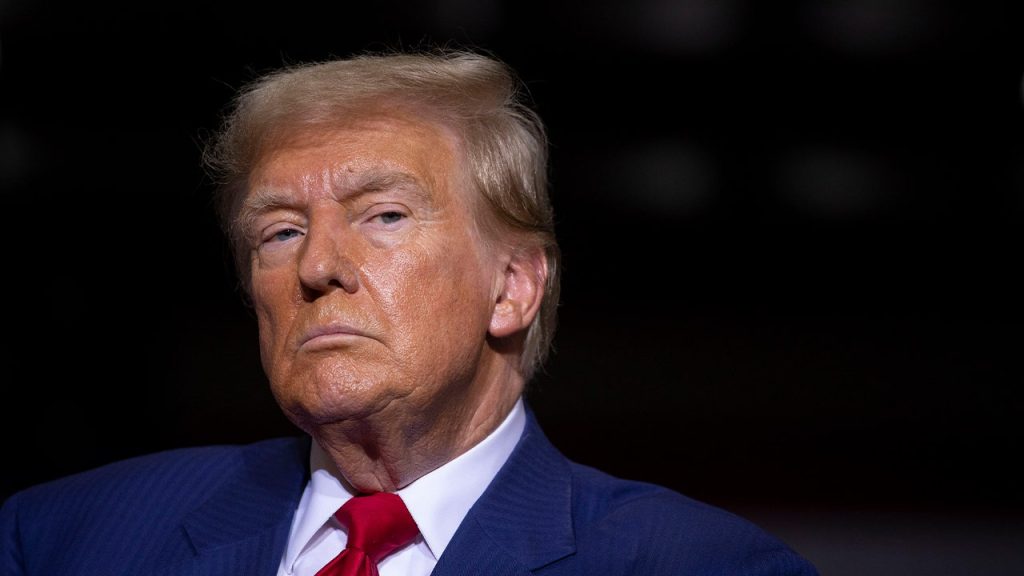In recent political discourse, the actions and statements of Donald Trump have sparked significant debate and analysis. This article explores the political maneuvering and apparent hypocrisy exhibited by Trump and other politicians, focusing particularly on the shifts in their positions regarding technology firms such as TikTok. The dynamic nature of political rhetoric, the possible implications for future elections, and how these fluctuations resonate with supporters are examined in depth.
| Article Subheadings |
|---|
| 1) The Nature of Political Hypocrisy |
| 2) Trump’s Shift on TikTok |
| 3) The Challenge of Consistency in Politics |
| 4) Reactions from Supporters and Critics |
| 5) The Political Landscape Ahead |
The Nature of Political Hypocrisy
Political figures often navigate turbulent waters filled with shifting opinions and loyalties. This constant fluctuation can lead to actions perceived as hypocritical. For example, many politicians, including Trump, find themselves justifying their policy changes and position reversals on crucial issues. This brings into question their integrity, with critics labeling these transitions as disingenuous or opportunistic. The very nature of political survival means that officials must align their narratives with parties or public sentiments, often leading to substantial changes in stated beliefs or policy directions. Accountability is paramount, yet it frequently seems overshadowed by partisanship.
Trump’s Shift on TikTok
During his time in the White House, Trump attempted to ban TikTok over alleged national security risks due to its Chinese ownership. He argued that the app posed a threat to American data security and youth. However, in a noticeable about-face, he has since positioned himself as a defender of TikTok, seeking to protect its presence in the U.S. market. This shift raises alarms regarding his earlier assertions, leaving many within his political circle and the general public questioning his motivations. As it turns out, Trump’s newfound support for TikTok is partially motivated by its enormous popularity, particularly among younger demographics.
The Challenge of Consistency in Politics
The challenge of consistent messaging is often brought to the forefront in political conversations. Politicians, and particularly Trump, have demonstrated a knack for rapid changes in tone or policy. This fluidity raises the question of how voters can trust decisions made by their elected representatives. Notably, Trump has been able to oscillate between contradictory statements with little difficulty, as evidenced by his responses regarding various international conflicts and domestic issues. Supporters, on the one hand, seem to appreciate his adaptability, while opponents view it as emblematic of a lack of principled commitment. The public’s tolerance for such inconsistencies illustrates a broader dialogue on the expectations placed on politicians.
Reactions from Supporters and Critics
Trump’s supporters often resonate with his ability to pivot and adapt to new political realities. Many voters seem to believe that this flexibility allows him to respond effectively to evolving issues. Critics, however, portray it as a lack of integrity or clarity of purpose. Particularly in media portrayals, the portrayal of Trump’s actions often hinges on the inherent biases of the outlets reporting. The overwhelming response to Trump’s positions ranges from fervent support at rallies to scathing criticism from more traditional media outlets. For many supporters, the fact that Trump can seemingly learn from past experiences is a testament to his political skills.
The Political Landscape Ahead
As Trump continues to navigate the political sphere and potentially prepares for future electoral campaigns, the implications of his approach will undoubtedly shape the landscape for upcoming elections. The ability of voters to reconcile rapid changes in policy or rhetoric with their expectations will play a crucial role in determining electoral outcomes. Furthermore, Trump’s political maneuvers raise broader questions about moral accountability in leadership. The electoral strategies employed by Trump will set the tone not only for his party but also for opponents. The unfolding narrative surrounding his actions will be closely scrutinized as the nation heads toward another election cycle.
| No. | Key Points |
|---|---|
| 1 | Political hypocrisy is common as politicians must adapt to shifting public opinion. |
| 2 | Trump’s recent reversal on TikTok exemplifies the contradictions in his political stance. |
| 3 | Consistency in political rhetoric is a challenge and often leads to questions of trust. |
| 4 | Supporters appreciate Trump’s adaptability, while critics label it as opportunism. |
| 5 | The future political landscape will be shaped by Trump’s ability to navigate changing narratives. |
Summary
The landscape of American politics is undeniably complex, characterized by often hypocritical positions and rapid shifts in policymaking. Donald Trump, with his unique approach to governance and public communication, acts as both a catalyst for discussion and an indicator of the evolving political environment. As the nation moves forward, understanding these dynamics will be pivotal for voters and officials alike, providing significant insights into both current and future political strategies.
Frequently Asked Questions
Question: Why do politicians change their positions?
Politicians often shift their positions to align with changing public opinions, address party loyalty, or respond to pressure from significant donors and interest groups.
Question: How has Trump’s stance on TikTok changed?
Initially, Trump sought to ban TikTok over national security concerns but has recently shifted to support its continued presence in the U.S., citing its popularity among younger voters.
Question: What is the impact of political hypocrisy on voter trust?
Political hypocrisy can erode voter trust as constituents may question the sincerity of their elected officials, creating a challenging environment for maintaining long-term support.
